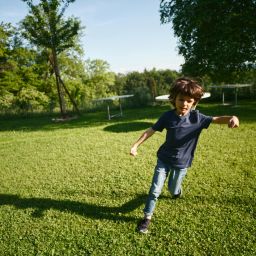
FH Summary: Starting small is the key to helping children develop positive, lasting habits, according to James Clear’s concept from Atomic Habits. By focusing on manageable changes, parents can create an upward spiral of success for their children, building foundational habits that lead to long-term benefits. The First Habits approach emphasizes consistent, small actions to foster these habits, offering parents practical strategies to guide their children toward a brighter future.
Starting Small: The Key to Transformative Habit Changes in Children
As parents, the desire to instill positive habits in our children is paramount. However, the path to cultivating these habits can often feel overwhelming, especially when faced with the daily challenges of parenting. Fortunately, the wisdom shared by James Clear in his best-selling book, Atomic Habits, provides a refreshing and effective approach: start small. This simple yet powerful concept can be the foundation for lasting change in your child’s life, turning small actions into significant, lifelong habits.
The Power of Starting Small
James Clear emphasizes the importance of beginning with small, manageable changes when trying to form new habits. This principle is particularly relevant when it comes to children. Imagine asking your child to overhaul their entire daily routine overnight—it’s likely to lead to frustration and resistance. However, when you introduce a small change, such as spending just five minutes a day reading, it becomes much more manageable and less daunting. Over time, these small changes accumulate, creating what Clear refers to as an “upward spiral” of positive habits.
Building an Upward Spiral
Developing good habits in children is crucial because it sets the foundation for their future success. When small, positive habits are consistently reinforced, they create a ripple effect, leading to more good habits and behaviors. This is what Clear describes as an upward spiral. For example, if you encourage your child to start each day by making their bed, this small act can foster a sense of responsibility and accomplishment. As they continue this habit, they may naturally begin to take on other responsibilities, such as organizing their schoolwork or helping with household chores.
Conversely, neglecting to establish these small habits can lead to a negative spiral. Without the structure and reinforcement of positive habits, children may develop less desirable behaviors that can be difficult to change later on. This underscores the importance of starting small and being consistent in nurturing good habits from an early age.
Research-Backed Strategies for Habit Formation
The idea of starting small is not just a theory; it is backed by extensive research. Studies have shown that breaking down goals into smaller, more achievable tasks increases the likelihood of success. This is because small changes are less intimidating and easier to incorporate into daily routines.
A short story to illustrate this point comes from a parent who struggled to get their child to read regularly. Instead of setting a goal of reading for 30 minutes a day, they started with just five minutes before bedtime. This small, manageable goal quickly became a cherished part of the child’s routine, eventually leading to a love for reading and a habit that continued well into their teenage years.
Optimal Habits for Children
So, what are the optimal habits to focus on with your children? While every child is unique, some foundational habits can set the stage for lifelong success. These include:
- Morning Routines: Starting the day with a structured routine, such as making the bed, brushing teeth, and eating a healthy breakfast, sets a positive tone for the rest of the day.
- Daily Reading: Encouraging even just a few minutes of reading each day can foster a love of learning and improve literacy skills.
- Physical Activity: Promoting regular exercise, whether it’s playing outside or participating in a sport, helps build physical health and discipline.
- Mindful Moments: Teaching your child to take a few minutes each day to practice mindfulness or deep breathing can help manage stress and build emotional resilience.
- Gratitude Practice: Ending the day by reflecting on what they’re grateful for can cultivate a positive mindset and improve overall well-being.
Implementing Small Changes for Big Results
Implementing these habits doesn’t have to be a daunting task. Start small and be consistent. For example, if you want your child to develop a morning routine, start with just one task, like making the bed. Once this becomes a habit, gradually add in other tasks. Remember, the goal is not perfection but progress.
It’s also important to celebrate small wins. Positive reinforcement can go a long way in encouraging your child to stick with their new habits. Whether it’s a high-five, a sticker chart, or simply verbal praise, acknowledging their efforts will motivate them to keep going.
Conclusion: The First Habits Approach
At First Habits, we understand the challenges of parenting and the desire to give your children the best start in life. Our philosophy is grounded in the belief that small, intentional actions can lead to significant, lasting changes. By focusing on developing good habits in your children, you are laying the foundation for an upward spiral that will benefit them for years to come.
For more insights and resources on building optimal habits in your children, visit other blogs on our website and sign up for our weekly newsletter. Together, we can help your children reach their full potential, one small habit at a time.
















